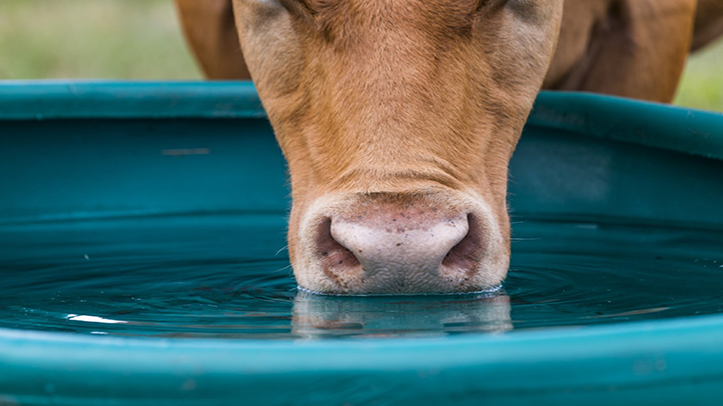Dairy farmers could make a massive difference to animal health and productivity by improving their water quality – and a new vet-led service promises to do just that.
FarmWater, which ensures clean, hygienic water regardless of water source, has proven itself within the poultry sector, and is now officially rolling out onto dairy farms, many of which have private water supplies of unknown quality.
“Water hygiene is an untapped area – few people realise what properly clean water is,” said vet Phil Elkins, who recently joined the FarmWater team.
“I joined because I can see a real opportunity to improve animal welfare, health and productivity on a large scale.”
The fully managed, non-toxic water treatment kills all common microbes, significantly reducing the risk of disease transfer, including mastitis and cryptosporidiosis.
In one 12-month farm trial at Taunton, Somerset, it slashed mastitis by 37%, somatic cell counts by 28%, and bactoscans by 81%. It also removes biofilms, making water more palatable for cows and reducing labour for farm staff.
At the Taunton farm, the payback period for the investment was under 2.5 years, with a £6,000-£7,000/year increase in profit thereafter, based on mastitis reduction alone, and not including the saving in mains water costs.
“I’ve been thinking about water quality for about five years – a lot of dairy units have problems with cryptosporidiosis, and I realised that most human outbreaks are from drinking water,” said Mr Elkins.
“I was working with a farm that had very good management and hygiene, and I wondered whether drinking water was the issue.”
FarmWater is a complete vet-led service, taking and analysing water samples, installing the treatment unit, and monitoring it on an ongoing basis. Like hospitals, the treatment uses chlorine dioxide, which oxidises all organic matter, but unlike chlorine it is non-toxic and doesn’t affect water taste.
“We talk a lot about trough space per cow, but not enough about ensuring the water is clean and palatable,” explained Mr Elkins.
“Many dairy farms use private water supplies like borehole, well or spring, but also spread slurry and manure onto the land, meaning pathogens can quickly re-enter the water table. Even those using mains water can get problems with biofilms building up in pipes and troughs. “It’s not just the cleanliness of water coming in to the farm, but the water within the pipes and troughs.”


